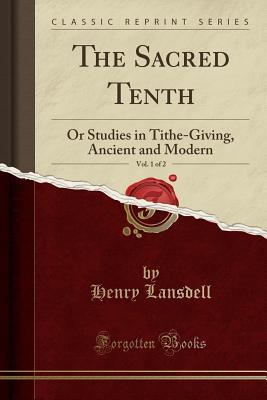The Importance of Vision
 The Grace of Giving If you were asked who were the top three Christian leaders of the 20th century, who would you say? Of course the list is subjective and influenced by personal appeal and one’s own theological tradition. When I ponder that question the following names jump out to me.
The Grace of Giving If you were asked who were the top three Christian leaders of the 20th century, who would you say? Of course the list is subjective and influenced by personal appeal and one’s own theological tradition. When I ponder that question the following names jump out to me. First, Billy Graham the evangelist, who must surely go down as one of the giants of the faith in any age. Second, Martyn Lloyd Jones, the peerless preacher and the man who reintroduced the puritans to the evangelical world. Third there is John Stott, for the immense clarity of his biblical exposition and writing that made complex issues transparent. Jim Packer, for his profound scholarly insights, comes in a very close fourth for me.
When I was researching my book Giving Generously, I came across a small booklet called The Grace of Giving by John Stott. Even though it is a very slim volume, originally given as an exposition of 2 Corinthians 8 and 9 in San Diego in 1998, I have found that anything that Stott has written on almost any subject is stimulating and informative. Thus I sat up and took notice. Stott enunciated ten principles of Christian giving. Here they are, all from 2 Corinthians.
1. Christian giving is an expression of the grace of God. (2 Corinthians 8:1-6)
2. Christian giving can be a charisma, that is a gift of the spirit. (8:7)
3. Christian giving is inspired by the cross of Christ (8:8&9)
4. Christian giving is proportionate giving. (8:10-12)
5. Christian giving contributes to equality. (8:13-15)
6. Christian giving must be carefully supervised. (8:16-24)
7. Christian giving can be stimulated by a little friendly competition. (9:1-5)
8. Christian giving resembles a harvest. (9:6-11a)
9. Christian giving has theological significance. (9:13)
10. Christian giving promotes thanksgiving to God. (9:11b-15)
I commend this booklet to you. It is easily available online. One point I might add that is not evident from this summary. It would be incredibly valuable to prepare a bible study for home groups based on this material. This will be very helpful but if you are a pastor looking to raise resources to fund gospel ministry, there is one more step to do. In 2 Corinthians 8 and 9 Paul does not shrink from actually asking people to contribute. This study would give people the knowledge and foundations of Christian giving. However Paul still actively asked for support and I suggest you must too. For more on how to ask, see Giving Generously.

 Where should I give? Several years ago the sad case of a 92 year old UK woman made the news. She had come onto the radar of a range of charitable organisations, who would ring and mail requests for donations to potential donors. I am not suggesting that there is necessarily anything wrong with this, but in the case of this lady, she was receiving so many calls and requests for money from so many different organizations that she felt completely overwhelmed. The tragic consequence was that due to these and other pressures, the poor lady took her own life.
Where should I give? Several years ago the sad case of a 92 year old UK woman made the news. She had come onto the radar of a range of charitable organisations, who would ring and mail requests for donations to potential donors. I am not suggesting that there is necessarily anything wrong with this, but in the case of this lady, she was receiving so many calls and requests for money from so many different organizations that she felt completely overwhelmed. The tragic consequence was that due to these and other pressures, the poor lady took her own life. Landsell was born in Kent in 1841, son of a school master. He was a student at the London College of Divinity and was ordained priest in the Church of England in 1868. A teetotaller, he gained a reputation as a dynamic preacher, which he combined with a passion for missions. Obviously he was bitten with the travel bug, and not having been tied down by the incumbency of a parish, began a roving existence visiting many countries and distributing bibles and Christian literature as he did so. Initially he visited France, Germany and other western European countries but soon embarked on multiple journeys. These included Northern and Eastern Europe, and through Asia to Japan and across the Pacific to San Francisco.
Landsell was born in Kent in 1841, son of a school master. He was a student at the London College of Divinity and was ordained priest in the Church of England in 1868. A teetotaller, he gained a reputation as a dynamic preacher, which he combined with a passion for missions. Obviously he was bitten with the travel bug, and not having been tied down by the incumbency of a parish, began a roving existence visiting many countries and distributing bibles and Christian literature as he did so. Initially he visited France, Germany and other western European countries but soon embarked on multiple journeys. These included Northern and Eastern Europe, and through Asia to Japan and across the Pacific to San Francisco.
 Pay It Forward Some years ago there was a book called Pay It Forward written by Catherine Ryan Hyde. It was subsequently turned into a movie. It was about the concept of doing a good deed and then asking that the recipient pass on the blessing, to pay it forward, rather than paying the giver back. I don’t know what inspired Catherine Ryan Hyde but the idea of paying it forward has a considerable history.
Pay It Forward Some years ago there was a book called Pay It Forward written by Catherine Ryan Hyde. It was subsequently turned into a movie. It was about the concept of doing a good deed and then asking that the recipient pass on the blessing, to pay it forward, rather than paying the giver back. I don’t know what inspired Catherine Ryan Hyde but the idea of paying it forward has a considerable history.  The Easter season is with us again. When I was a boy I was excited by the prospect of extra holidays and chocolate eggs and other goodies. I was not raised in a church going home so was only vaguely aware of any deep spiritual significance of Good Friday or Easter Sunday. Nor did I think I should change my life in any way except to monitor my chocolate intake to avoid getting gorged. When I became a Christian the profound significance of Christ’s death for sins became much clearer to me and as a result I needed to change my life from serving myself to following Jesus.
The Easter season is with us again. When I was a boy I was excited by the prospect of extra holidays and chocolate eggs and other goodies. I was not raised in a church going home so was only vaguely aware of any deep spiritual significance of Good Friday or Easter Sunday. Nor did I think I should change my life in any way except to monitor my chocolate intake to avoid getting gorged. When I became a Christian the profound significance of Christ’s death for sins became much clearer to me and as a result I needed to change my life from serving myself to following Jesus. Decision Time: You will have heard of a common scenario. St Johns Church has a healthy vital ministry, for example a kids’ ministry based around a flourishing Sunday school. It is really humming. There are 200 kids showing up every Sunday morning. There is a dedicated enthusiastic team of volunteer leaders led by a dynamic volunteer leader who just loves the ministry and pours his or her life into it. The congregation look on and are very pleased. Parents are delighted to know their children are in a great Christian community, making friends and learning the scriptures. Grandparents are thrilled as they see the next generation being taught Christian truth to prepare them for life in a secular age. The minister is delighted to see such a thriving work that contributes to the overall health and well-being of the church as a whole.
Decision Time: You will have heard of a common scenario. St Johns Church has a healthy vital ministry, for example a kids’ ministry based around a flourishing Sunday school. It is really humming. There are 200 kids showing up every Sunday morning. There is a dedicated enthusiastic team of volunteer leaders led by a dynamic volunteer leader who just loves the ministry and pours his or her life into it. The congregation look on and are very pleased. Parents are delighted to know their children are in a great Christian community, making friends and learning the scriptures. Grandparents are thrilled as they see the next generation being taught Christian truth to prepare them for life in a secular age. The minister is delighted to see such a thriving work that contributes to the overall health and well-being of the church as a whole.

 The apostle Paul on one occasion urged his hearers to be generous, to share, and to remember those less fortunate. He quoted some famous words of Jesus:
The apostle Paul on one occasion urged his hearers to be generous, to share, and to remember those less fortunate. He quoted some famous words of Jesus: